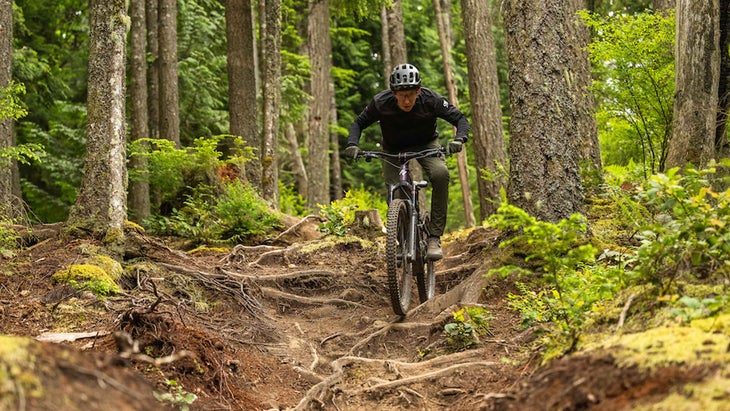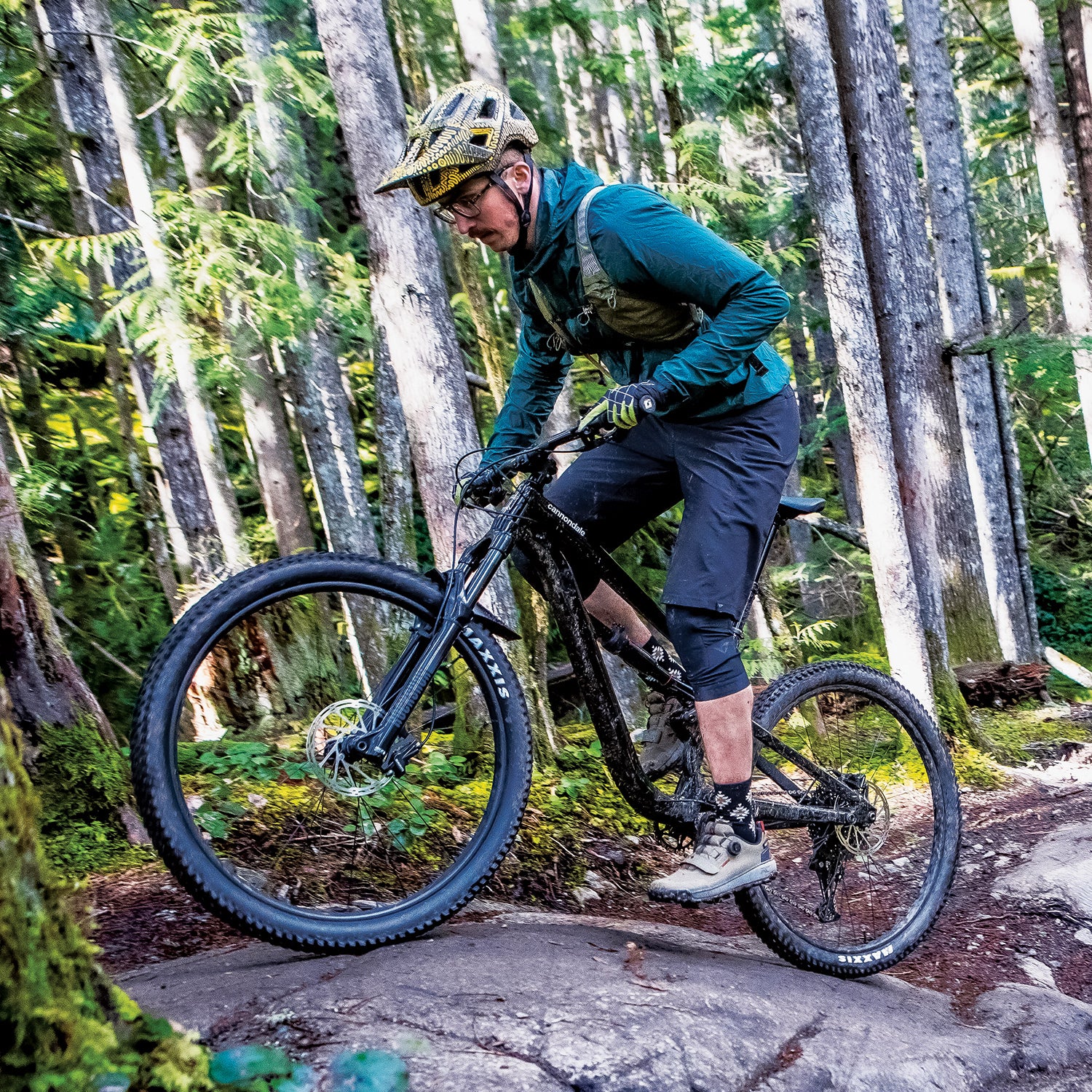In recent years, mountain bike manufacturers have built heavier and heavier bikes with high-end components in pursuit of better riding. Some riders are questioning whether all that extra weight is worth the riding benefits, so we asked the experts. Two Pinkbike editors debate below whether modern mountain bikes are now too heavy鈥攐r if the extra weight exponentially helps their performance.
Yes, Weight Matters
By Mike Kazimer, Cycling gear director

Modern mountain bikes are better than ever, but some of them have become downright rotund, especially long-travel enduro bikes: thick tires, burly forks, coil shocks, and big brakes all add up to a fairly significant figure on the scale. Those components work well when gravity takes over, but come climbing time, well, lately it feels like we鈥檙e back in the freeride days of the early 2000s, when getting off and pushing was an acceptable way of reaching the top of a hill.
For me, weight matters. Think of it this way: Would you rather ride your bike in its current state, or with a gallon of milk (roughly eight pounds) strapped to the frame? I鈥檝e spent more than my fair share of time pedaling heavy bikes around in the woods, including a season when I decided that a 40-pound Specialized Demo 8 with a dropper post was an acceptable trail bike. But these days, I鈥檇 rather have something lighter on all-day adventures.
The weight-doesn鈥檛-matter mantra lets manufacturers off the hook, giving them carte blanche to keep cranking out burdensome behemoths. It鈥檚 2024鈥攕houldn鈥檛 the goal be for new bikes to weigh less than the old ones? There have been numerous advances in materials and construction techniques that make it possible to create a bike that鈥檚 both strong and relatively light.
We鈥檒l see what the next few years brings, but I鈥檇 love a return to trail bikes with a reasonable weight and a reasonable price. Here鈥檚 hoping.
No, Performance Matters
By Dario DiGiulio, Technical editor

We build bikes in pursuit of the best performance for a given purpose, whether that鈥檚 downhill prowess, all-day reliability, or efficient climbing. Many factors play a role, weight among them. And while weight may , the benefits outweigh (no pun intended!) the penalty incurred from all those extra grams.
This is easiest to argue in relation to bikes focused on descending, where performance and mass tend to go hand in hand. Reliable, energy-absorbing tires are heavier than thin, single-ply alternatives but make a real difference on the trail. Suspension systems benefit from increased oil volume, a stout chassis, and a tight seal to keep out the elements. A dropper post is something I won鈥檛 go without, and the longer they get, the heavier they are. Ultimately, I鈥檇 love for all performance requirements to be met by lightweight components, but we haven鈥檛 achieved that balance yet.
Even cross-country bikes are getting heavier, but that鈥檚 not the result of lazy product managers pretending the grams don鈥檛 count. The new crop of electronically controlled suspension systems weigh more than traditional ones, but testing has demonstrated their benefit when it comes to speed. Modern cross-country courses are more technically demanding than they used to be, so it makes sense for a bike鈥檚 components to size up in order to meet the task. Even the average rider benefits from the added performance of heavier components, since trails don鈥檛 become mellower the more they鈥檙e ridden. Big brakes, slightly more aggressive tires, and longer-travel suspension have all entered the chat, and I鈥檓 good with that.
Sure, my personal bike may weigh 43 pounds, but I鈥檓 not foisting that tonnage on anyone else. Somewhere between the extremes lies the ideal, which should be judged on real-world performance, not the figure on a scale.



